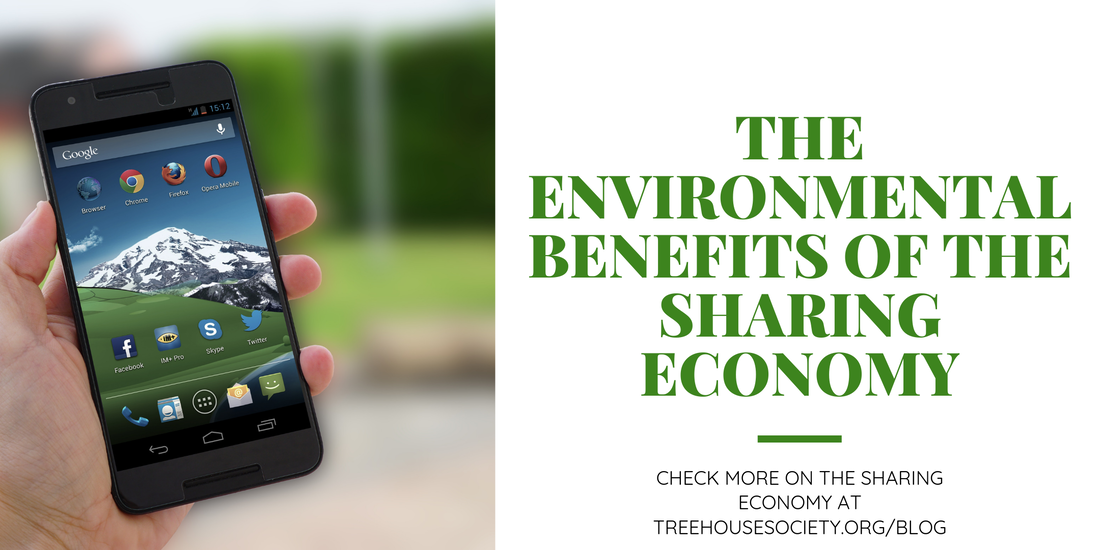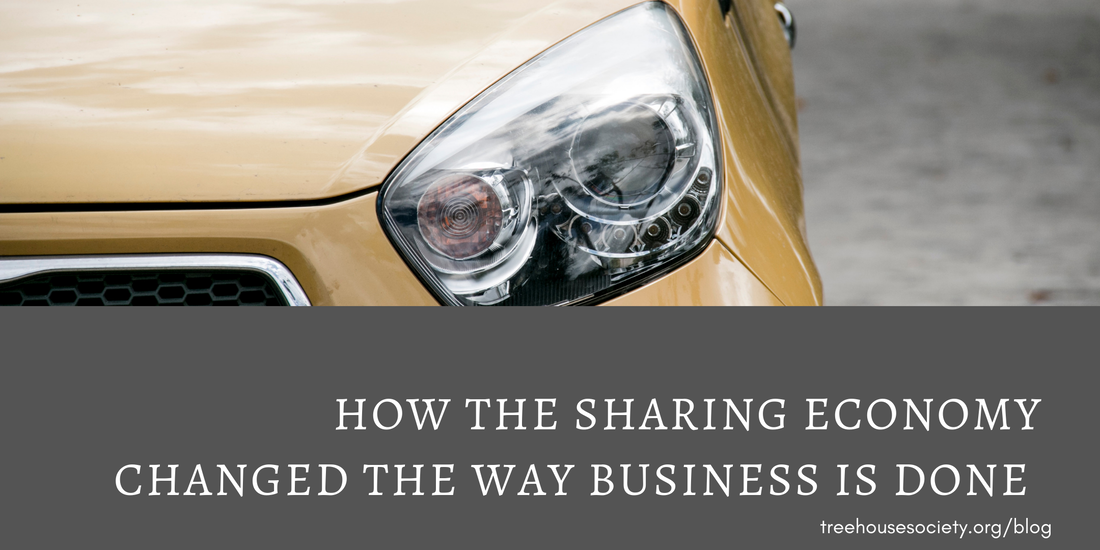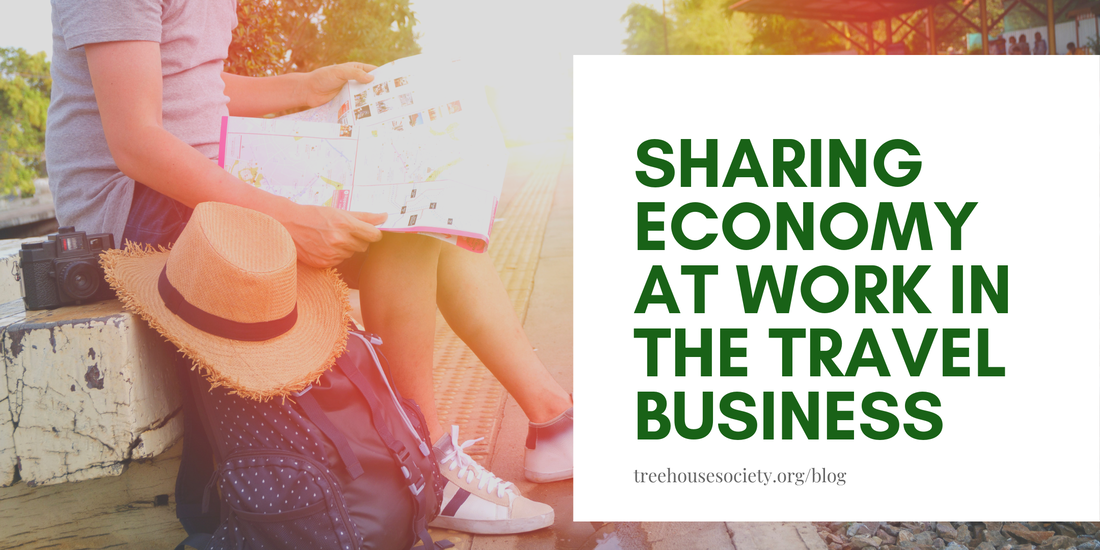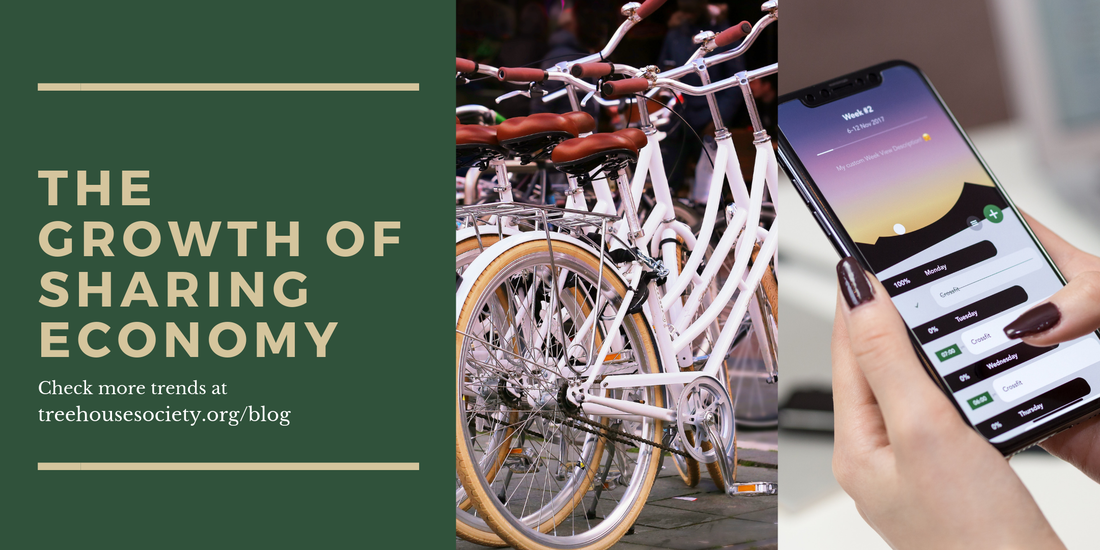|
The type of lifestyle being lived on earth is, in most cases, causes a deteriorating effect on the resources. Also, the emission level through the use of vehicles and factories has caused their devastating effects. One of the prescribed ways through which a greener planet can be created is through sharing economy.
What Does Sharing Economy Mean? This collaborative consumption economy works on a peer-to-peer sharing model. This model works on –the ability of individuals to use rented or borrowed goods instead of buying or owning their own. Although not everybody buys into the idea of sharing economy model, its benefits are enormous. On the economy sharer’s part, there is cost management and convenience. Earth also benefits from a reduction in the usage of its resources. Other Ways Sharing Economy Benefits The Environment
Here, the combined use of public transportations, bicycles, ride-sharing platforms, walking and so on comes into play. Interestingly, some of the emission is due to the production of electricity. This particular aspect can be addressed by using solar panels and other green alternative sources of electricity. Furthermore, another eco-friendly means through which you can get your accommodation like Airbnb helps in preserving trees.
Living in a rented space can help reduce this harmful practice drastically. You are in charge of determining what quantity of water is sent down the drain and washed away.
Going to your preferred destinations using ride-sharing platforms will positively influence the rate at which gasoline is being used. In truth, it also helps to reduce the number of cars on the road. Hence, reducing the traffic jam.
You can think upon any resource you would like to have and you would discover that there is a sharing economy platform already set up to take care of your need. To Wrap It Up The sharing economy is a great step into creating and preserving the greener planet everyone hopes for. The narrative for a greener world must be keyed into for the better management of the resources left. References https://searchcio.techtarget.com/definition/sharing-economy https://www.diva-portal.org/smash/get/diva2:1145502/FULLTEXT01.pdf https://www.parqex.com/4-ways-the-sharing-economy-helps-the-environment
0 Comments
It does not matter if you love it or hate it, the fact remains that, the sharing economy is here to stay.
The 21st century is all about finding creative ways to satisfy the needs of its targeted consumers with all of the resources that are made available. Smart entrepreneurs know that these resources already exist and all they need to do is to connect the owner to the users from cars to houses to a desk at a coworking space. There are sharing economy platforms ready to connect the resources to the users. The owner of the resources might provide better items to share than a boring corporation who just treat you like another customer. In the sharing economy where items are rented from a peer to peer, not only does everything work more efficiently, but customer service is also better as you are treated as a peer. In other news, the sharing economy is basically about effectively utilizing and sharing available resources instead of creating or obtaining newer resources. All of these are achieved as it makes use of idle assets. Nevertheless, technology has made known the benefits of the sharing economy and now it is practically disrupting how we do business. Changes Brought By Sharing Economy The sharing economy is revolutionizing our business landscape in so many ways than one and even in ways that professionals do not foresee. Some of the changes this sharing economy has brought to our business world include:
All of this gave businesses so much control but decreased efficiency in the long run. Over time, the process of production has grown much more complex and the businesses that had the sole goal of doing everything alone are faced with a crushing cost in money, labor, skill, and of course, time. Here, the production process will entail a set of unique tasks that will be outsourced to people who are skilled enough to carry out the job. Such a method will assist in reducing costs for the original owner of the business.
For now, these costs are related to maintenance. Owners of idle resources have to invest in the resource's maintenance else the earning power will be crucially reduced. With the sharing economy, assets that sit idly by are equated to a loss of money. For every second that your assets are not being rented out to someone, potential earning is missed.
The issue of getting funds has been a huge challenge that hustlers, small business owners, and entrepreneurs once faced but with the exciting promises that sharing economy currently holds, anybody can begin a business and start making money. Wrapping It Up The world is becoming much more accessible, all thanks to sharing economy and technology. Many professionals have argued that sharing economy is an economy that is consumptive and not productive while some others claim that its use cases are quite limited. However, it is a sign that the sharing economy is a success when corporations start copying the sharing economy's business model. For example, Enterprise Rent-A-Car is now offering rideshare services and there are corporate coworking spaces. Nonetheless, all these do not stop the fact that the sharing economy is disrupting so many businesses and existing industries in an exciting way. For years, the sharing economy has been making a lot of buzz around the travel industry.
Therefore, the travel companies we have today must determine ways to react to this trending phenomenon that has managed to capture the hearts of travelers running into millions. Although the phrase sounds new, it is in fact as old as commerce and even old as the first recorded exchanges of both goods and services. Currently, individuals can easily reach out to total strangers all over the world at a very reduced cost web-enabling the peer to peer network. Also, the smartphone platforms have thrown open the gates to newer stages of connectivity and reduced the bar for innovation without the costly investment in both developments as well as programming. Travel Businesses Utilizing Sharing Economy In the travel industry, resources that the average individual is sharing range from beds, cars, and even sofa. All these changes have been able to grow vastly as a result of the smart companies and their clever marketing expertise. They practically discovered ways to not only promote but also package these sharers together. Now, they are making good money by collecting a little cut from every transaction carried out. Meanwhile, some of the prominently known sharing economy travel players in the game consists of:
Although the concept behind hosting guests in private homes is not in any way new, Couchsurfing took it to the web and transformed it into a phenomenon that kick-started sharing economy in our 21st century.
It can be said that Airbnb looked upon Couchsurfing, studied their ability to connect surplus accommodation resources and took it all to a whole new commercial level. The function of Airbnb is to connect homeowners with travelers and make a profit from both parties.
Uber has brought about a successful taxi service that is based on an app. Though the company has met with resistance in recent times, it has however managed to stand tall. Sharing Economy And The Travel Industry With the controversies that currently surrounds both Uber and Airbnb, it has shown that both commerce and technology have made faster moves than legislation. Due to all these, travel companies, as well as authorities, are being faced with unprecedented difficulties as even companies that have been established for years are being swept off with the speed of lightning. However, travel companies are responding now. They now understand that they need to be flexible and so, hotel rooms, rental cars, and workspaces are being made available by the hour. Also, more products are presented as being shareable and this includes the hotel rooms. Sharing Economy and the travel business will ultimately result in newer marketplaces, partnerships, connections and booking processes for travel companies that are brilliant enough to swiftly adapt. To Wrap It Up Have it in mind that, before money was introduced, the available economies were all based on sharing tasks and possessions. Nonetheless, the sharing ability of the last few years has been transformed as a result of technology. Once upon a time, in the age of Mad Men, the ownership of a house, car and even the idea of possession allocation was considered the peak of living the dream. Possession used to be how one shows off their wealth.
However, in more recent times with the advancement of technology, the concept of a less is more and collaborative standpoint has attained steady grounds and it is pushing ownership to the curb. Minimalism is now the new luxury of this modern world. Nonetheless, certain smart folks have started figuring out and distributing assets that kindle the growth of the economy and turning resources that have gone stale into money. Also, the whole emancipation from ownership has gradually become a free notion and sharing has started fostering the seeds of community. This is where sharing economy and its growth comes in. What Is Sharing Economy? The sharing economy is referred to as an economic system wherein services or even assets are evenly shared between persons or businesses for either free or for a specific fee. Moreover, the idea behind it is to improve asset usability and to make their lifespan much more worthwhile. For users, they are now much more capable of seeking out things, most times through apps and they get to use them easily. Currently, the sharing economy has been forecasted to increase or grow from its fifteen billion dollars back in the year 2014 to a whopping $335 billion in the year 2025. Much more rapidly, we are moving to the world of the sharing economy. Participants Of The Sharing Economy Best believe that there are so many businesses and persons involved in the whole concept of a shared economy. Here's how: Should you need a very affordable yet swift way to move around town, there are many choices now. From scooters to bikes to cars, all kinds of sharing economy options are available at your fingertips. Some assets are being underutilized in our world as people already have so many things attached to themselves. Where are you going to stay for the night? You can choose Airbnb for a room or boutique hotel rooms or even a van from Outdoorsy if you want a road trip kind of night. How about a camping night at Hipcamp? Also, you need to a photoshoot for your Instagram, there are expert camera gear you can use from the prominent lensrental.com and if you need computers for your recently hired team filled with designers, you can rent Apple computers as well. As earlier mentioned, there are so many people and companies that have assets begging to be utilized. This makes certain that the sharing economy is steadily growing as it has so many things to offer such as the fact that it has already expanded from peer to peer to corporations to customers.
When these computers are rented out, all of your projects become profitable and you end up reducing the number of e-waste that will end up possibly in landfills. Summing It Up Note that, sharing is not a new approach or technique of life. There have been shared or rentable goods available for years. The sharing life is not just more convenient, it is cheaper and more sustainable. The outburst of Uber, Airbnb, Getaround back around 2009 marked the latest era of the sharing economy. They are all innovative p2p business models that no one can deny. Notably, Uber has been known to leave a mark on the daily life of every individual. This is none other than the legitimized rise of what we know as the sharing economy today.
Currently, there is a sharing resolution for all our needs. It ranges from home-sharing down to desk sharing and up to the exchange of daily household duties and tasks. So many individuals are more than willing to completely trust and open their lives to strangers that are willing to offer any desired temporary service or product as the case may be. The concept of sharing services or products instead of outright buying it has deeply resonated with consumers all over the world. It has created a shift in the mentality of consumers as well as their spending behavior. Blockchain And The Sharing Economy Blockchain has a clear-cut definition which refers it to a computerized, decentralized public ledger for every digital currency transactions. Each of the transactions is documented in chronological order. They are made easily accessible to anyone that is on the blockchain and it has no particular intermediary that facilitates any of the transactions. It is widely known that the blockchain eliminates all control of central authorities and governing entities. Also, it enables people to better carry out peer to peer transactions. Blockchain is said to be the next stage in the amazing evolution of the sharing economy. This is possible because, with the blockchain, there are immutable and binding smart contracts that practically hold each party accountable. This is what powers every blockchain. Each of these contracts defines and ultimately enforce rules regarding the agreement and this means that they function as substitute referees in the peer to peer transactions. Uber could survive or die based on its ability to adapt to the blockchain. The smart contract can also allow an Airbnb host to accept and filter guests better on the p2p protocol. Some companies are the near future of a blockchain-based sharing economy. Diverse organizations are gradually rising as disruptors to the existing disruptive sharing industry. Some of the companies that have been projected to make a significant impact on the everyday life of consumers include:
It has a decentralized network that operates based on the Blockchain and it is powered by virtual currencies to aid in increasing the accountability, security and ultimate safety of straight exchanges between the home providers and the renters.
Meanwhile, the Wi-Fi providing platform known as OPP Open Wi-Fi is developing a person to person network that focuses on solving inaccessibility of the internet and will disrupt all payment for Wi-Fi plans. Die to the fact that the OPP platform practically taps into some advertising dollars, the people who need Wi-Fi will not be required to make any payment before they access the hotspot of OPP Open Wi-Fi. Also, the hosts will be paid through digital currencies whenever they activate their OPP mobile app. To Wrap It Up With the advent of the sharing economy, it is evident that individuals are eager to transact with one another although intermediaries have been the ones in control of every interaction and transactions that occur. However, with the incorporation of blockchain into the concept of sharing economy, it has the prospect of eliminating all these middlemen and truly creates a person to person marketplace. |
Categories
All
|








